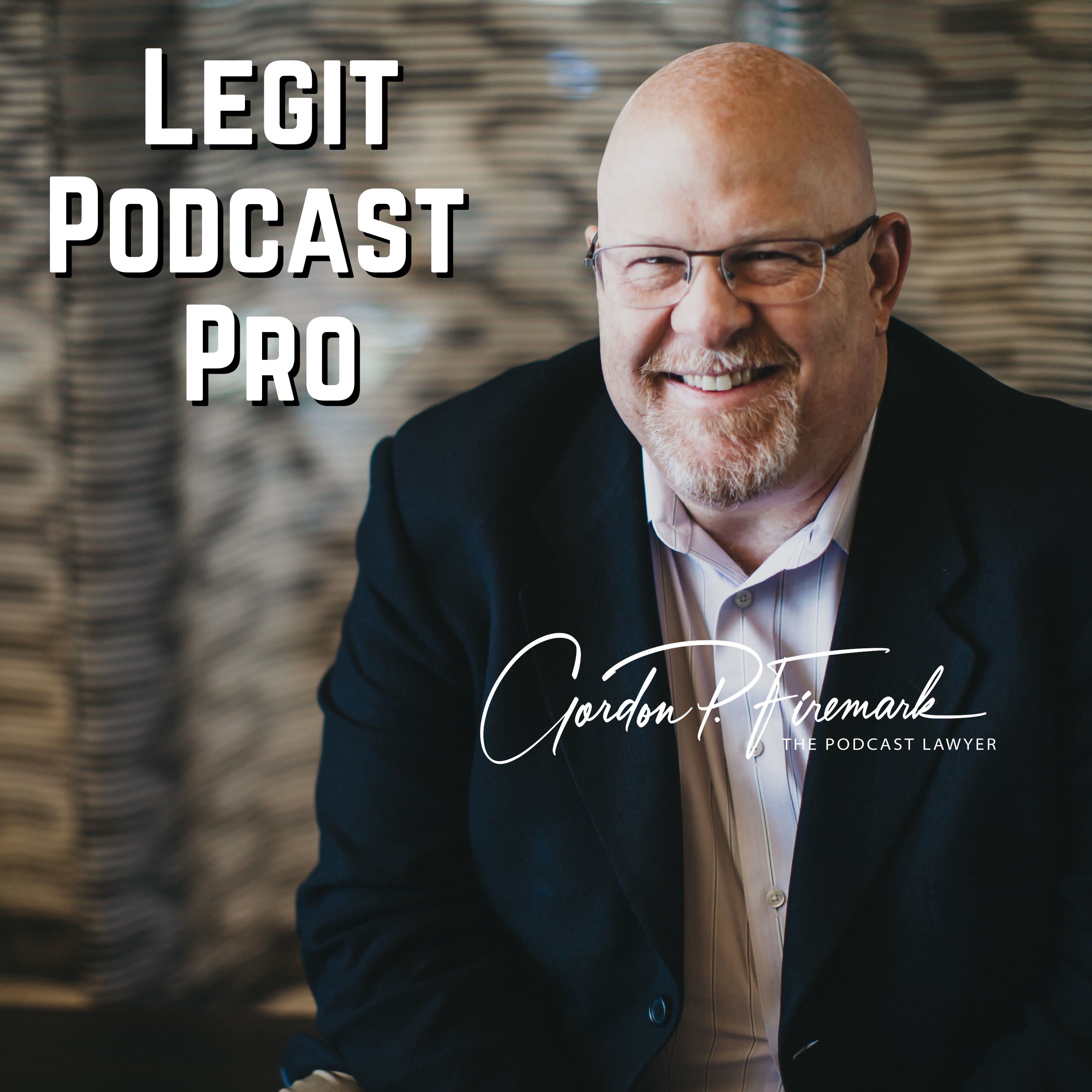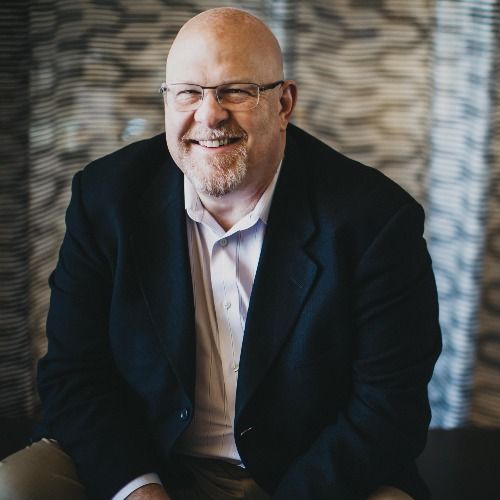full
No Minor Issue: working with kids in podcasts
Summary:
Gordon Firemark, The Podcast Lawyer™, addresses a viewer's question about having a minor as a co-host on their podcast. This episode covers the enforceability of minors' contracts, the sufficiency of parent signatures, the court-approval process in various states, and other significant legal and business concerns when working with minors in media and entertainment. Additionally, we discuss Leonardo DiCaprio's early career and the impact of voiding his contracts as a minor.
Key Points:
- Enforceability of contracts with minors.
- The role and sufficiency of parent signatures.
- States offering court approval for minors' contracts in entertainment.
- Additional legal and business considerations (labor laws, education requirements, safety, and privacy).
- Leonardo DiCaprio's early career example and its legal implications.
Call to Action:
For more legal advice and podcast-specific legal forms, visit PodcastLawForms.com.
Follow Us:
- YouTube: https://youtube.com/gfiremark
- Twitter: https://twitter.com/gfiremark
- Instagram: https://instagram.com/gordonfiremark
Contact:
For legal consultations and more information, visit https://firemark.com
Hashtags:
#Podcasting #LegalAdvice #MinorsInMedia #PodcastLaw #EntertainmentLaw #GordonFiremark #ThePodcastLawyer #LegitPodcastPro
Transcript
No minor issue working with kids in podcasting.
Speaker:Hey there, podcasting pros. There's an old adage in show business,
Speaker:never work with animals or children, and it's mainly
Speaker:about being upstaged by their cuteness. But have you ever wondered
Speaker:about the legal hoops when you're involving kids in your podcast? Well,
Speaker:today, we're diving into a question from one of our viewers about having a
Speaker:minor as a cohost. So stick around because this is something you
Speaker:definitely want to get right if you do it.
Speaker:Welcome back to another episode of Legit Podcast Pro. I'm your host, Gordon
Speaker:Firemark, the podcast lawyer. And in today's episode, we are tackling a
Speaker:crucial topic, working with minors in podcasting. Now this is
Speaker:an area filled with potential pitfalls and legal nuances,
Speaker:but it is also one that can lead to really unique and engaging content if
Speaker:it's handled correctly. So we're gonna answer a viewer's question
Speaker:about using a minor as a cohost. We're gonna discuss everything from
Speaker:the enforce ability of the contracts with minors, the role of parents
Speaker:and their signatures, and the court approval process that some states have. And we'll
Speaker:also cover a few other legal business considerations to think about
Speaker:when working with kids in media and entertainment. So let's get right
Speaker:into this viewer's question. He wrote in, I'll have
Speaker:an episode, upcoming where a minor will act as a cohost.
Speaker:I had his parents sign the guest release document, and I made some slight changes
Speaker:to indicate that he's a minor. He's going to cohost, and
Speaker:both parents gave their permission for all of the things that are already in the
Speaker:release. I'm just not sure if this is legit enough, but I thought that this
Speaker:might be something other podcasts have or are considering.
Speaker:Well, this is an excellent question and one that lots of
Speaker:podcasters ought to think about as they expand their content
Speaker:to include younger voices. It is a reminder that while podcasting
Speaker:can seem very straightforward, there are often hidden
Speaker:legal complexities that can come up, especially when minors are involved or
Speaker:other slightly out of the ordinary,
Speaker:things are are part of the equation. So first things first, contracts
Speaker:with minors. Generally speaking, contracts with
Speaker:minors are not enforceable against the minor. That means that if the
Speaker:minor or the parents later decide to back out of the deal, they
Speaker:can typically do that without legal consequences. That's
Speaker:because the law recognizes that minors may not fully
Speaker:understand the implications of a contract and, therefore,
Speaker:can't be held to the same standards as adults. And, in
Speaker:fact, for instance, one very now very famous actor appeared
Speaker:in several films as a minor, and later when he became an adult,
Speaker:he voided some of those agreements, making it impossible to
Speaker:distribute those films. We'll talk a little more about that in a minute, but this
Speaker:is a perfect example of the complications that can arise
Speaker:when working with kids and why it's crucial to understand the legal
Speaker:landscape. So are parent signatures enough if the
Speaker:kids can't make their own contracts? Well, having a parent or guardian sign
Speaker:the release is a useful step. It shows that the parents are aware
Speaker:of and they consent to the minor's participation,
Speaker:but this alone may not be sufficient to really
Speaker:provide full legal protection. Parents can consent on
Speaker:behalf of their minor children, but there are limits to
Speaker:what they can legally agree to. For
Speaker:example, they can't waive certain labor protections or rights
Speaker:that the child the child might have. They can't force the kid to work.
Speaker:We call that slavery, and that's not something we do here.
Speaker:That means that while a parent's signature can help to demonstrate their
Speaker:consent, it doesn't entirely eliminate the risk
Speaker:of the minor later backing out or challenging the agreement at
Speaker:some other time. So it is a worthwhile
Speaker:effort to get the parents' signatures, but it isn't always going to
Speaker:be sufficient. So, in
Speaker:some states, especially those with a robust entertainment
Speaker:industry like California and New York, there's an additional step
Speaker:you should be aware of. It's a court approval process. Now it's
Speaker:not a requirement, but getting court approval can render
Speaker:the contract fully binding and enforceable even though one
Speaker:of the parties is a minor. Now this process ensures that the terms of
Speaker:the contract are fair and in the best interests of the child.
Speaker:So here's a quick overview of how the court approval process
Speaker:works here in California. And as I understand it, New York and Illinois
Speaker:have similar programs and very similar. While each state has its own
Speaker:specific procedures, here's what they sort of have in common.
Speaker:First off, you need to draft a petition that includes details
Speaker:about the contract, the terms of the contract, the minor's role, and
Speaker:the information about the parents or legal guardians. And you have to
Speaker:justify why the contract should be approved, that it's fair and
Speaker:reasonable. Next, you file the petition with the appropriate
Speaker:court. Now that's in California, that's called the Superior Court.
Speaker:In New York, it's called the New York State Supreme Court, and in Illinois,
Speaker:it's the circuit court. Just to keep things interesting, they use different
Speaker:nomenclature for these things. Anyway, you typically you file this in the
Speaker:county where the minor resides or will where the work is
Speaker:going to be performed. Now in addition to
Speaker:this petition, the court usually requires some supporting documents
Speaker:that'll, of course, be a copy of the contract itself, the minor's
Speaker:work permit. California also requires proof of something called a
Speaker:Coogan account. It's a special segregated bank account that
Speaker:safeguards a portion of the minor's earnings until they
Speaker:are an adult. Now if you're doing a podcast where there's no earnings to speak
Speaker:of, this may not be something you can do, but it's something to be aware
Speaker:of. Once the petition is filed, a hearing date might
Speaker:be set. Now the hearing allows the judge to review the contract,
Speaker:consider its fairness, talk to the lawyers, and hear from all of the
Speaker:interested parties. During that hearing, the judge will evaluate
Speaker:the fairness of the deal, the compensation working conditions, and the
Speaker:impact on the minor's education and well-being. They'll also
Speaker:ensure that a portion of those earnings are put aside in that Coogan account if
Speaker:it's California, and other states will do similar things. Sometimes,
Speaker:if the paper record is sufficient, the judge can actually rule without a hearing.
Speaker:And here in California, my experience is most the time this is just done through
Speaker:the mail. Anyway, if the judge approves the contract, then they
Speaker:issue a court order, and that makes the contract binding
Speaker:and enforceable. So by understanding these processes
Speaker:and the nuances, you can better navigate the legal landscape
Speaker:of of working with minors in your projects. And this will ensure
Speaker:that all the legal requirements are met and protections in place for both the
Speaker:minor and the producer of the show. Now beyond
Speaker:contracts, there are some other significant legal and business
Speaker:concerns when you're working with minors. First off,
Speaker:labor laws. Most states have specific labor laws that
Speaker:address minors, restrictions on their working hours and conditions.
Speaker:For example, minors are often limited in the number of hours they're
Speaker:allowed to work each day and week, and there are usually restrictions
Speaker:on the times of day that the work is allowed. Ensuring
Speaker:compliance with these laws is critical to avoid legal
Speaker:trouble. Education requirements. You also
Speaker:probably have to assure that the minor's participation will not
Speaker:interfere with their education. Some state states require
Speaker:that a studio teacher or a welfare worker is present to monitor the sky
Speaker:the school's, excuse me, the child's schooling or welfare. And
Speaker:that's especially important when it's longer projects or that are gonna take the kid away
Speaker:from the regular school during normal school
Speaker:periods. So keep that in mind. Safety
Speaker:and welfare is another concern. It's always important to prioritize the minor
Speaker:safety and well-being, including having a clear plan for
Speaker:emergencies, making sure the working environment is safe and suitable for
Speaker:kids, and adhering to any guidelines that the state or federal
Speaker:child labor laws set out. It is essential to create a child
Speaker:friendly environment that fosters creativity while also
Speaker:ensuring their protection. Number 4 is privacy
Speaker:concerns. Protecting minors' privacy is important.
Speaker:Be mindful of the information shared about the kid and ensure
Speaker:that they know what they're disclosing and that the consent is
Speaker:given for those disclosures, especially when there are personal
Speaker:details. This includes being cautious about sharing where they
Speaker:live, their name, address, the school, or any other identifying
Speaker:information that might be made public by the episode.
Speaker:So let's dive a little deeper now into that young
Speaker:actor I mentioned. You might have heard of him. His name
Speaker:is Leonardo DiCaprio. And as a young actor,
Speaker:DiCaprio participated in several student film and experimental film
Speaker:projects under agreements that were made while he was still a
Speaker:minor. Later, as an adult and as his career was taking
Speaker:off, he began to exercise his right to void those early
Speaker:contracts so that those films would never be seen again. And that action
Speaker:resulted in challenges for the filmmakers who had investments in their
Speaker:projects that they could no longer distribute or profit from
Speaker:without a renegotiation with DiCaprio, who is now an established
Speaker:czar. Well, this situation underscores the potential pitfalls
Speaker:of working with minors in the entertainment industry. If those
Speaker:contracts had been court approved, the producers would have had much
Speaker:more solid ground to stand on. It's a perfect illustration of why
Speaker:taking additional legal steps like seeking court approval can be
Speaker:important. These steps can save you from potential disputes
Speaker:and ensure that your project remains viable and legally sound.
Speaker:So while having a minor as a cohost can certainly add a unique and
Speaker:engaging element to your podcast, it is vital that you navigate
Speaker:the legal landscape carefully, ensure you have the necessary
Speaker:parental consents, and consider that court approval if it's
Speaker:available, and always prioritize the minor's safety and
Speaker:well-being. Learning from past examples, like the DiCaprio
Speaker:story and his early career, will really help you make more informed
Speaker:decisions and avoid potential legal headaches.
Speaker:Well, thanks for tuning to this episode of, Legit Podcast
Speaker:Pro. If you have more questions about the legal aspects of podcasting,
Speaker:please visit podcastlawforms.com where you can access all kinds of
Speaker:podcast specific lawyer generated legal forms and templates that you might need,
Speaker:or reach out to me with your questions. Until next time, keep on
Speaker:podcasting like a legit podcast pro.

